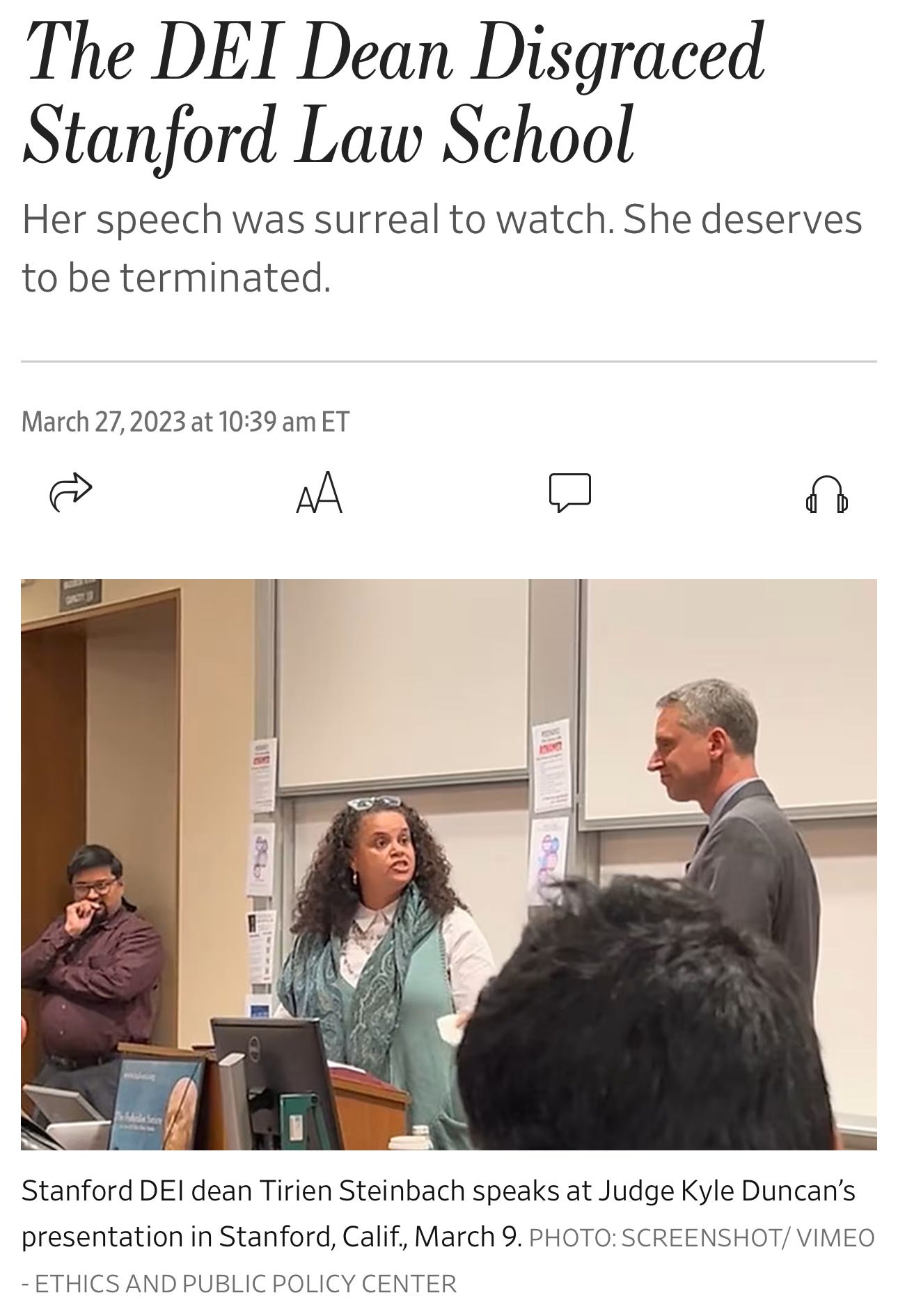Why don't college students care about free speech?
I spoke yesterday on the First Amendment and social media at the University of North Carolina; great event, but 80 percent of the people who showed up were over 50.
Last night, James Lawrence - my lawyer in Berenson v Biden - and I had the privilege of speaking at the University of North Carolina about the threats to free speech.
The event, at the student union, was well-publicized and -run. Our hosts, the university’s Student and Alumni Free Speech Alliances, even offered free pizza.
The good news is that close to 100 people showed up to hear us talk over the need to end government efforts to restrict “misinformation” on social media.
The bad news is that they were nearly all alumni. Fewer than 20 students came.
—
—
The sparse student attendance gave me a chance to see for myself what surveys increasingly reveal.
College students, especially those on the left, don’t particularly care about freedom of speech, or see it as a value worth defending. In fact, some view it as actively dangerous and will try to block speech they don’t like.
Their tactics begin with soft intimidation and escalate from there. Yesterday, four conservative-leaning University of North Carolina law students told me how other students had stood outside their events in prior years, writing down the names of attendees, to hint that they would be ostracized for their participation.
At first I found this difficult to believe, particularly at a law school, where the value of free expression and inquiry should be held in the highest regard.
Then I remembered the 2023 incident where Stanford Law School students shouted down a conservative federal judge, with the apparent encouragement of the school’s then-associate dean for Diversity, Equity and Inclusion (yes, an actual job).
—
(As she famously asked: Is the juice worth the squeeze, judge? Issss the juuuice worth the squeeze?)
—
The growing passivity of college students was visible during Covid, when students did little to protest the tight restrictions schools put on them long after it was clear Covid posed them essentially no risk.
It is equally apparent this fall, when modest threats from administrators have effectively squelched the pro-Hamas - or, if you prefer, pro-Gaza - protests that broke out last spring. (It also suggests those protests had more to do with cosplaying and virtue signaling than closely held views.)
I can’t pretend I have an answer to this problem. College students should be uniquely open to hearing voices they don’t like and even find unpleasant. The fact their professors and administrators instead work with and sometimes even encourage them to ignore or silence those voices instead is a failure of academia.
It’s also a failure of the students.
—
(Support free speech. For next to nothing!)
—
After the event yesterday, John Preyer, the chairman of UNC’s board of trustees, said he hoped I’d come back for another event - this time with more student involvement.
I gladly will. I just hope next time everyone is a little less hospitable. I’d love to debate the virtues of free speech with a student who thinks she has the right to a safe and inclusive learning environment, or who thinks governments have the obligation to protect people from lies and misinformation.
Sometimes a good argument is the best way to the truth.





How do you square your commitment to free speech with your desire to see Alex Jones bankrupted for saying some nonsensical and hurtful things about the Sandy Hook massacre?
It's a symptom of a larger problem afflicting the West. Our lives, and especially the younger generations, are too comfortable. Too safe. Too insulated from physical reality. There are not enough negative experiences that highlight the value of rights and freedoms.